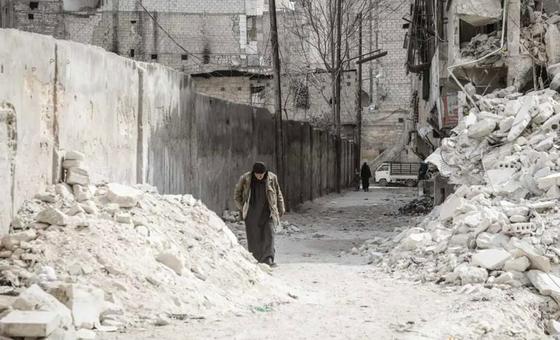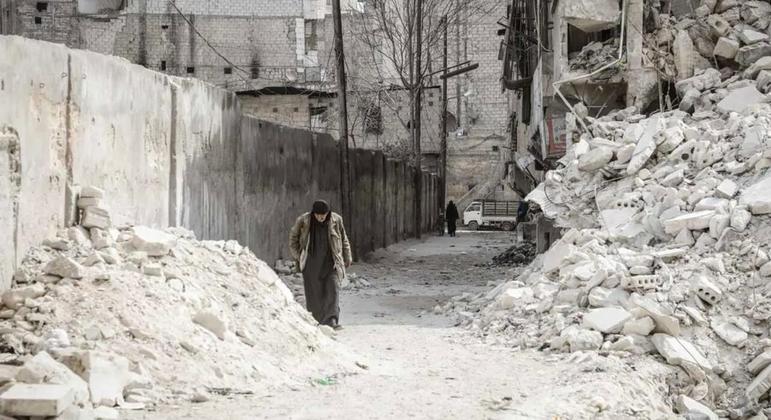
Briefing ambassadors at the UN Security Council, Geir Pedersen said that recent spike in violence, including airstrikes, rocket attacks and clashes between armed groups, underscored the urgent need for a political resolution.
In addition, protests continue in some regions over unaddressed grievances and the presence of six foreign armies in the country are raising fears further fragmentation and destabilization.
“There is no military route to resolving these myriad challenges – only a comprehensive political solution can do that,” Mr. Pedersen said.
Having held discussions with Government officials as well as Russian, Iranian, Turkish, Chinese, Arab, American and European counterparts, his message is clear, added the Special Envoy.
“The political track, blocked and dormant, needs to be unstuck.”
Humanitarian crisis
The ramifications of political impasse reverberate far beyond the negotiating table, exacerbating an already dire humanitarian crisis gripping the nation.
Over 16.7 million people need humanitarian assistance, including seven million who remain displaced from their homes, and more than half the population require food assistance.
“More people need humanitarian aid in Syria now than at any point in the crisis. And yet funding for our humanitarian appeal has fallen to a record low,” Joyce Msuya, UN Deputy Emergency Relief Coordinator, informed ambassadors.
The lack of resources is devastating, she added, noting that UN agencies, such as the World Food Programme (WFP) has been forced to reduce its emergency food assistance programme from three to one million people per month.
Doing what we can
Ms. Msuya noted that UN humanitarians are doing what they can to bridge the gap, recalling the $20 million allotment to Syria through the Organization’s Central Emergency Response Fund (CERF).
“But far, far more is needed in order to meet such massive levels of need and avert even more painful cuts in vital support. The scarcity of resources only reinforces how critical it is to deliver aid through all available routes,” she said, stressing the importance of cross-border aid deliveries from Türkiye into northern Syria.
“It allows us to deliver life-saving relief, provide essential protection, health and education services, and conduct regular assessment and monitoring missions to Idleb and northern Aleppo,” she added.
Protect civilians
The senior UN humanitarian official recalled the Secretary-General’s statement marking the 13th year of the crisis, stressing the need to respect international humanitarian law and protect civilians.
She emphasized the need for sustained and unhindered humanitarian access through all modalities, as well as the necessary funding to sustain critical aid programmes.
“Once again, we call for renewed and genuine commitment to a political solution to end the conflict, in the hope that next year, the people of Syria will have a peaceful Ramadan, with fewer impossible choices to make.”



